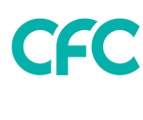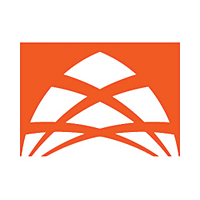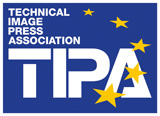 W
WThe Asia-Pacific Research and Training Network on Trade (ARTNeT) is an open regional network composed of leading trade research institutions across the United Nations Economic and Social Commission for Asia and the Pacific (ESCAP) region, and supported by the International Development Research Centre (IDRC) and Agence française de développement (AFD).
 W
WThe Asia-Pacific Economic Cooperation is an inter-governmental forum for 21 member economies in the Pacific Rim that promotes free trade throughout the Asia-Pacific region. Following the success of ASEAN's series of post-ministerial conferences launched in the mid-1980s, APEC started in 1989, in response to the growing interdependence of Asia-Pacific economies and the advent of regional trade blocs in other parts of the world; it aimed to establish new markets for agricultural products and raw materials beyond Europe. Headquartered in Singapore, APEC is recognized as one of the highest-level multilateral blocs and oldest forums in the Asia-Pacific region, and exerts a significant global influence.
 W
WThe Asian Clearing Union (ACU), with headquarters in Tehran, Iran, was established on December 9, 1974, at the initiative of the United Nations Economic and Social Commission for Asia and the Pacific (ESCAP). The primary objective of ACU, at the time of its establishment, was to secure regional co-operation as regards the settlement of eligible monetary transactions among the members of the Union to provide a system for clearing payments among the member countries on a multilateral basis.
 W
WThe Cairns Group is an interest group of 19 agricultural exporting countries, composed of Argentina, Australia, Brazil, Canada, Chile, Colombia, Costa Rica, Guatemala, Indonesia, Malaysia, New Zealand, Pakistan, Paraguay, Peru, the Philippines, South Africa, Thailand, Uruguay, and Vietnam.
 W
WThe Common Fund for Commodities (CFC) is an intergovernmental financial institution established within the framework of the United Nations. It is a vestige of the proposed New International Economic Order. The CFC finances commodity development projects in developing states.
 W
WEcumenical Advocacy Alliance is an international network of over 90 churches and Christian organizations cooperating in advocacy on global trade and on HIV and AIDS. Working with these groups, the alliance strives to better inform policies and practices of governments, international institutions, corporations, and local communities.
 W
WThe Eurasian Customs Union is a customs union which consists of all the Member states of the Eurasian Economic Union. The customs union is a principal task of the Eurasian Economic Community, established in 2000, and now succeeded by the Eurasian Economic Union. No customs are levied on goods travelling within the customs union and – unlike a free-trade area – members of the customs union impose a common external tariff on all goods entering the union. One of the consequences of the customs union is that the Eurasian Union negotiates as a single entity in international trade deals such as the World Trade Organisation, instead of individual member states negotiating for themselves.
 W
WThe Eurasian Economic Space or Single Economic Space is a single market that provides for the free movement of persons, goods, services and capital within the Eurasian Economic Union. The Single Economic Space was established in 2012 with the goal of creating an integrated single market. It is inspired by the European Internal market and the European Economic Area.
 W
WThe Federation of Oils, Seeds and Fats Associations is the main trade association for the oil, seeds and fats industry. It regulates legal contracts in the trade/industry.
 W
WThe Gas Exporting Countries Forum (GECF) is an intergovernmental organization currently comprising 19 Member Countries of the world's leading natural gas producers: Algeria, Bolivia, Egypt, Equatorial Guinea, Iran, Libya, Nigeria, Qatar, Russia, Trinidad and Tobago, Venezuela are members and Angola, Azerbaijan, Iraq, Kazakhstan, Malaysia, Norway, Peru United Arab Emirates are observers. GECF members together control over 71% of the world's natural proven gas reserves, 44% of its marketed production, 53% of the pipeline, and 57% of the liquefied natural gas (LNG) exports across the globe. It is headquartered in Doha, Qatar.
 W
WThe Hanseatic League was an influential medieval commercial and defensive confederation of merchant guilds and market towns in central and northern Europe. Growing from a few north German towns in the late 12th century, the League ultimately encompassed nearly 200 settlements across seven modern-day countries; at its height, it stretched from the Netherlands in the west to Estonia in the east, and reached as far north as Swedish Gotland and as far south as Kraków, Poland.
 W
WThe Hanseatic Parliament is an association of more than 50 business chambers around the Baltic Sea region with the common goal of promoting the small and medium-sized companies (SMEs), in particular in the fields of qualification, research and innovation. There is strong cooperation with the public sectors in the countries involved, but the Parliament is a non-governmental and non-profit organization.
 W
WInternational Business Wales (IBW) is a development agency of the Welsh Government set up with the remit of delivering support to help companies establish themselves in Wales. Once established in the country, companies are allocated a Relationship Manager with the skills to help grow the business and are offered a relocation service that helps their executives settle there.
 W
WThe International Road Transport Union (IRU) is the world road transport organisation, which upholds the interests of bus, coach, taxi and truck operators to ensure economic growth and prosperity via the sustainable mobility of people and goods by road worldwide.
 W
WThe International Trade Centre (ITC) is a multilateral agency which has a joint mandate with the World Trade Organization (WTO) and the United Nations (UN) through the United Nations Conference on Trade and Development (UNCTAD).
 W
WKOTRA is a state-funded trade and investment promotion organization operated by the Government of South Korea. KOTRA was established in 1962 as a national trade promotion organization. Since then, it has facilitated Korea's rapid export-led economic development through various trade promotion activities such as overseas market surveys, SME export promotion, trade info services, government-to-gov't export, foreign investment in Korea (FDI) promotion and business matchmaking.
 W
WThe Organisation for Economic Co-operation and Development is an intergovernmental economic organisation with 38 member countries, founded in 1961 to stimulate economic progress and world trade. It is a forum of countries describing themselves as committed to democracy and the market economy, providing a platform to compare policy experiences, seek answers to common problems, identify good practices and coordinate domestic and international policies of its members. Generally, OECD members are high-income economies with a very high Human Development Index (HDI) and are regarded as developed countries. As of 2017, the OECD member countries collectively comprised 62.2 % of global nominal GDP and 42.8 % of global GDP at purchasing power parity. The OECD is an official United Nations observer.
 W
WThe Organisation of African, Caribbean and Pacific States (OACPS) is a group of countries in Africa, the Caribbean, and the Pacific that was created by the Georgetown Agreement in 1975. Formerly known as African, Caribbean and Pacific Group of States (ACP), the organisation's main objectives are sustainable development and poverty reduction within its member states, as well as their greater integration into the world's economy. All of the member states, except Cuba, are signatories to the Cotonou Agreement with the European Union.
 W
WPanjiva Inc. is a global trade data company based in New York City. It is a subscription-based website with import and export details on commercial shipments worldwide. Panjiva was founded in 2006 by Josh Green and James Psota.
 W
WThe Review of Maritime Transport (RMT) an annual publication by the United Nations Conference on Trade and Development (UNCTAD). It provides an analysis of structural and cyclical changes affecting seaborne trade, ports and shipping, as well as an extensive collection of statistical information
 W
WThe Technical Image Press Association (TIPA) is an international, non-profit association advocating the interests of the photography and imaging magazine-publishing industry.
 W
WTrade Data Monitor (TDM) is a trade data company based in Charleston, SC and Geneva, Switzerland. It checks and aggregates monthly import and export statistics for over 100 countries using Harmonized System commodity codes, offers specialized training in trade statistics, and provides clients with a searchable database and built-to-order statistical reports.
 W
WThe United Nations Commission on International Trade Law (UNCITRAL) is a subsidiary body of the U.N. General Assembly (UNGA) responsible for helping to facilitate international trade and investment.
 W
WThe United Nations Conference on Trade and Development (UNCTAD) was established in 1964 as a permanent intergovernmental body.
 W
WThe Universal Postal Union, established by the Treaty of Bern of 1874, is a specialized agency of the United Nations (UN) that coordinates postal policies among member nations, in addition to the worldwide postal system. The UPU contains four bodies consisting of the Congress, the Council of Administration (CA), the Postal Operations Council (POC) and the International Bureau (IB). It also oversees the Telematics and Express Mail Service (EMS) cooperatives. Each member agrees to the same terms for conducting international postal duties. The UPU's headquarters are located in Bern, Switzerland.
 W
WThe Washington International Trade Association (WITA) is an organization that hosts forums for discussing issues of international trade in the United States. The meetings hosted by WITA have been used by members of Congress to discuss their goals on trade. Operating as a non-profit, non-partisan organization, WITA itself does not engage in political discussion or debate.
 W
WThe World Intellectual Property Organization is one of the 15 specialized agencies of the United Nations (UN). Pursuant to the 1967 Convention Establishing the World Intellectual Property Organization, WIPO was created to promote and protect intellectual property (IP) across the world by cooperating with countries as well as international organizations. It began operations on 26 April 1970 when the convention entered into force. The current Director General is Singaporean Daren Tang, former head of the Intellectual Property Office of Singapore, who began his term on 1 October 2020.
 W
WThe World Trade Organization (WTO) is an intergovernmental organization that regulates and facilitates international trade between nations. It officially commenced operations on 1 January 1995, pursuant to the 1994 Marrakesh Agreement, thus replacing the General Agreement on Tariffs and Trade (GATT) that had been established in 1948. The WTO is the world's largest international economic organization, with 164 member states representing over 96% of global trade and global GDP.